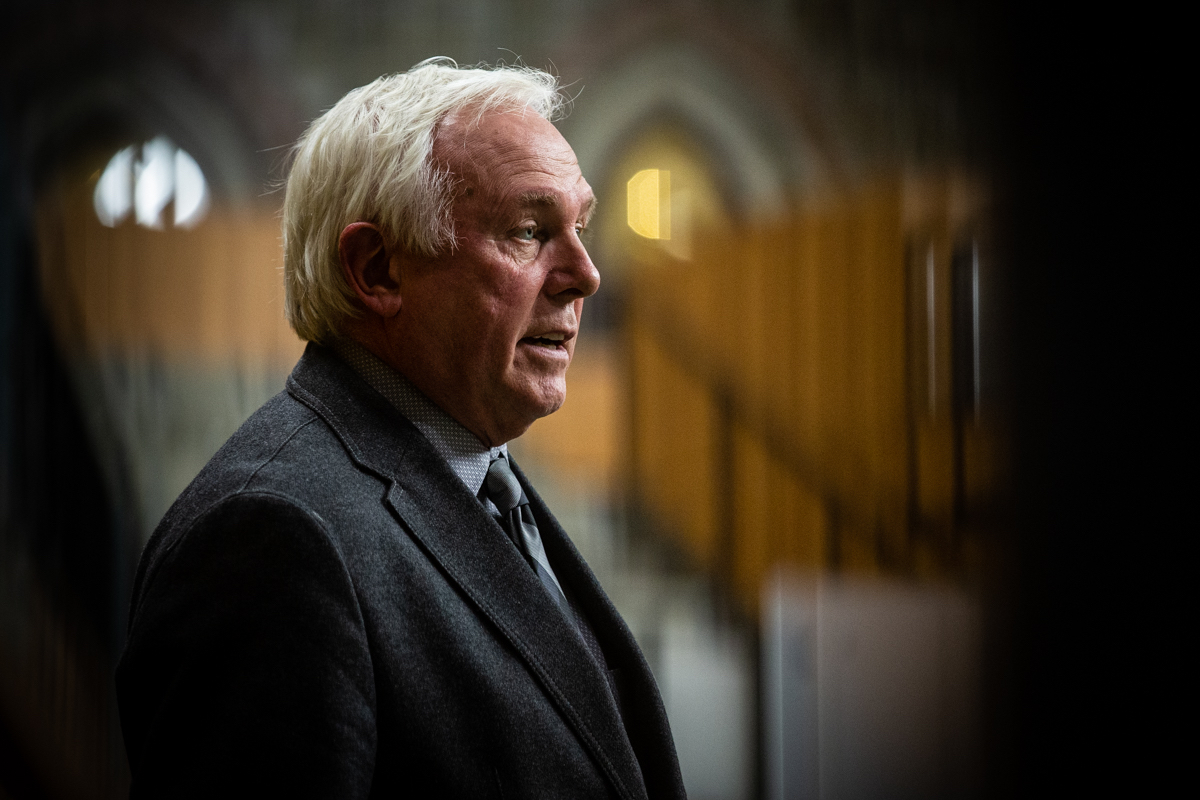Kootenay Columbia MP Rob Morrison feels the federal government’s Bills C-5 and C-75 will not be effective in dealing with crime.
According to the proposal, Bill C-5 would eliminate mandatory minimum sentences for 14 criminal code offences and all six under the Controlled Drugs and Substances Act.
“We had a victim from Cranbrook as a witness in committee for C-5,”said Morrison. “She was talking about not only being a personal victim in her own house being broken into but also as part of the business community.The business owners have been significant victims of vandalism and theft and damage.”
Morrison said Bill C-5 would allow people who commit crimes to get away with more.
“There’s a group [of business owners] getting together looking at how they move forward and what solution there can be,” said Morrison.
“That sort of flies in the face of C-5, which is about not only removing mandatory minimum sentences for serious offences like robbery with a firearm but also providing conditional sentences, probation and no jail time, for people with trafficking and crystal meth charges. Things that are causing our community significant harm with our crime rate increases.”
While a number of gun-related offences will have their associated minimum penalty repealed, such as using a firearm or imitation firearm in the commission of an offence, the example Morrison used regarding armed robbery will remain in place under specific circumstances, such as use of a restricted firearm, or if it is being done in connection with a criminal organization.
According to Bill C-5, this would result in a five-year sentence for the first offence, and seven years for subsequent offences. Robbery with a firearm would have its associated mandatory minimum sentence removed outside of those situations, however.
Morrison, a former RCMP member, is also critical of Bill C-75, which passed and was given royal assent in 2019.
“You need to have a deterrent, but in the opioid world, that deterrent can’t be to catch them, bring them to court and tell them not to do it, let them go, they do it again and then they’re back to court,” said Morrison.
“You do this 70 or 80 times, and there doesn’t seem to be any success in that. So you should either put them into forced mandatory rehab, where they go in and once they complete rehab, they can reintegrate with our communities,” said Morrison.
“Or, we start again with prevention programs [in] kindergarten and go all the way through school.”
Morrison said the bills don’t leave much room for victims of crime.
“Historically, business owners, especially in communities like Cranbrook, donate $50,000 or $100,000 to non-profit organizations every year, and if that money is going into security, and damage and things, how are our non-profits going to survive?” asked Morrison.
“Another area is: when you get victims, especially sexual assault victims, see the person who assaulted them get probation and back in the community living three blocks away,” said Morrison.
“Where’s the safety and the comfort of the individual who was already a victim and now has to be a victim again because there are no mandatory minimums and they’re getting conditional sentences?”
According to the current Bill C-5, mandatory minimums would, in fact, remain for sexual offences.
Bill C-5 was originally introduced in 2021 and is now in the committee review phase. Given the partnership between the federal Liberals and NDP, Morrison is not confident that the outcome of committee negotiations will be in the Conservatives’ favour.
More: Bill C-5: Mandatory Minimum Penalties to be repealed (Federal Government of Canada)
More: Government of Canada announces Criminal Code reforms to modernize the criminal justice system and reduce delays (Federal Government of Canada)





